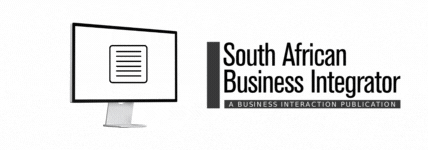With Black Friday signalling the start of South Africa’s peak travel season, FlySafair has issued a strong warning to both leisure and business travellers: cybercriminals are preparing to exploit the surge in online activity.
SABRIC’s latest figures illustrate why the alert is timely. South Africans lost an estimated R1.8 billion to cybercrime in 2024, with more than 100 000 attacks reported – a sharp, concerning 86% increase from the previous year.
“Black Friday creates a sense of pressure,” says Kirby Gordon, FlySafair’s chief marketing officer. “Scammers rely on that urgency. When people rush, they verify less.”
Why the travel sector is a target
The Association of Certified Fraud Examiners South Africa notes that significant online retail events often lead to higher levels of fraud. In the travel sector, where bookings involve valuable personal information and card payments, the stakes are exceptionally high.
This year, criminals are deploying methods that blur the line between genuine and fraudulent:
• AI-assisted impersonations of staff, brands and customer service agents
• Clone websites with near-perfect branding and layout
• Expanding use of QR-code phishing and SMS fraud to harvest personal data
False FlySafair pages on social media remain a persistent issue. These accounts push deals that no airline could realistically offer, such as extremely low-priced unlimited flights, designed to capture customer details.
“Always cross-check deals on our official website or verified social pages,” says Gordon. “If the price looks implausible, it probably is.”
AI and the new era of deception
Artificial intelligence is enabling fraudsters to produce polished voice notes, emails and video content that closely resemble legitimate airline communication. This has complicated traditional fraud detection, making verification essential.
Black Friday generates an overwhelming volume of marketing messages, providing ideal cover for fraudulent courier alerts, security warnings and booking-related messages. Many include links or QR codes that redirect to fake sites.
Travellers should carefully confirm URLs – flysafair.co.za must be exact, with no added characters or unusual domain endings.
Protecting your PNR
Passenger Name Records remain a high-value target. Scammers frequently claim they need a PNR to confirm a booking or authorise a refund, hoping to create a sense of urgency.
Gordon cautions: “We never request PNRs through unsolicited communication. Any message asking for it is a red flag.”
Social media: High traffic, high risk
With more businesses using social platforms for bookings, promotions, and customer support, scammers are tapping into the same channels. Unverified accounts and influencer-style adverts often lead users to fraudulent sites.
Checklist for safer business and holiday travel:
1. Confirm you are using flysafair.co.za.
2. Only trust verified, blue-ticked social media profiles.
3. Treat unusually low-priced deals with suspicion.
4. Protect booking references – never share your PNR.
5. Ensure payment pages show HTTPS encryption.
6. Slow down before authorising any transaction.
7. Report fraudulent activity immediately.
For validation of any FlySafair communication or promotional detail, visit www.flysafair.co.za or use the contact details provided on the airline’s official site.



